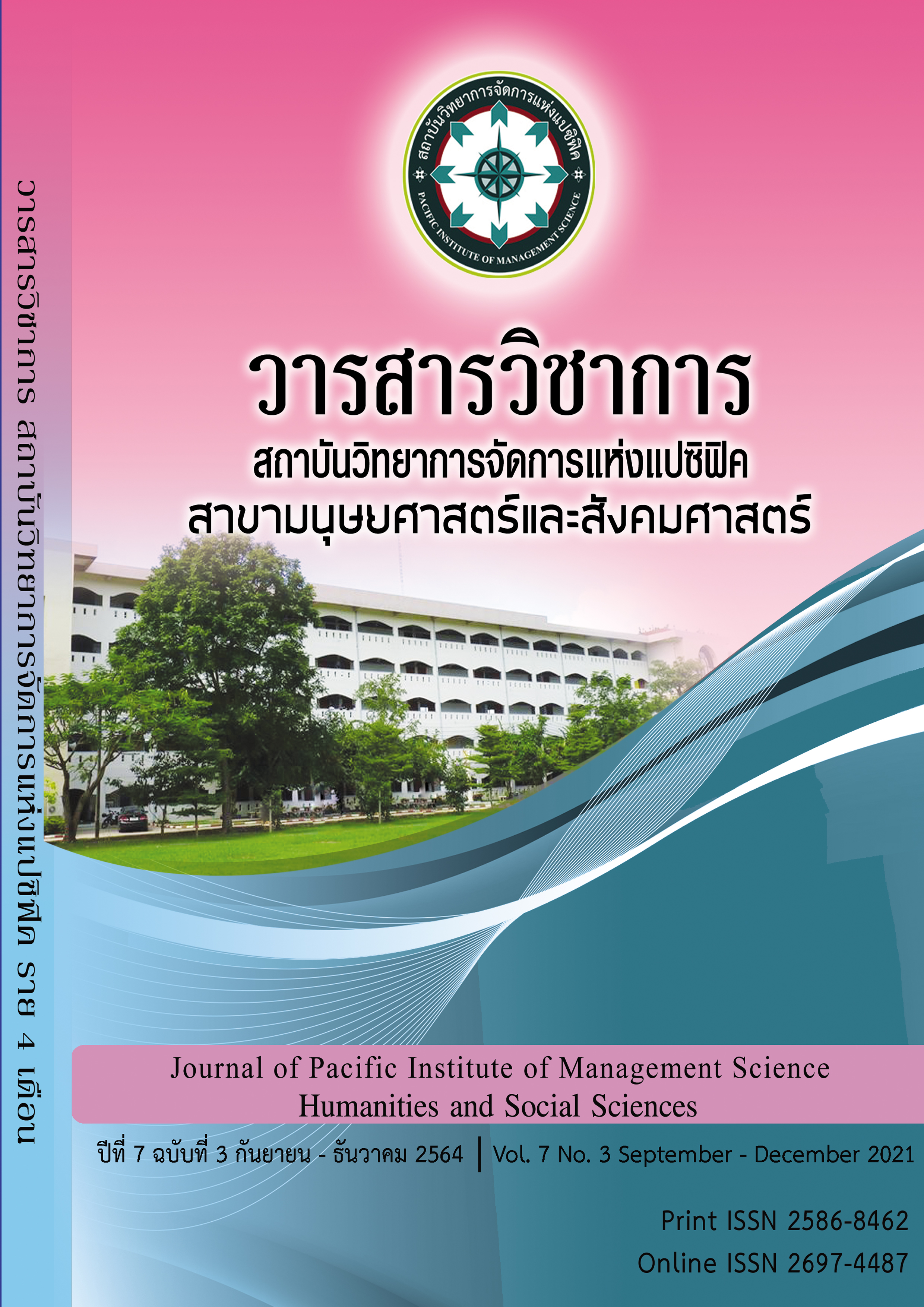Problems on Discretion of Film Regulatory Organization.
Keywords:
Discretion, Committees, Movie Genre CategorizationAbstract
Problems of the discretion of the regulatory organization according to the Film and Video Act B.E. 2551in screening and approving films being published because there are provisions that do not comply with the principles of the freedom of expression as well as the discretion is not consistent with the objectives of the law to categorize film genres according to audiences. By studying and comparing the laws of different countries (e.g. Australia, the United States of America and the French Republic), it was found that the discretion was made through the film industry. This included the representatives of the film creators who participated in categorizing film genres. There were different numbers of the committees as well as appropriate screening periods. However, it was found that the disapprovals of the Thai film and video screening committees did not meet the objectives of the mentioned laws. Moreover, the number of the committees was too high.
Therefore, it is suggested by the author to adjust the committees by including a representative(s) from the film industry in screening films as well as to set standards for the discretion in screening the films according to the Section 25, the objectives of the law, and the principle of the freedom of expression. It is also suggested to extend the appeal period under the Section 66 to 30 days after being ordered for the fairness of film creators.
References
คณาธิป ทองรวีวงศ์. (2555). กฎหมายเกี่ยวกับสื่อสารมวลชน. กรุงเทพฯ: นิติธรรม. หน้า 424.
คมกริช วัฒนเสถียร. (2558). ความรู้เบื้องต้นเกี่ยวกับกฎหมายทั่วไป.(พิมพ์ครั้งที่ 8)กรุงเทพฯ: บัณฑิตไทยหน้า 106.
คู่มือปฏิบัติงานการพิจารณาวินิจฉัยอุทธรณ์คำสั่งทางปกครอง (ออนไลน์). เข้าถึงได้จาก http://www.palad.mof.go.th/wp.
จิรนิติ หะวานนท์. คำอธิบายกฎหมายปกครอง(ภาคทั่วไป).(พิมพ์ครั้งที่ 6) กรุงเทพฯ: สำนักอบรมกฎหมายแห่งเนติ
เชิดเกียรติ ภวนะวิเชียร. การวิเคราะห์และวิพากษ์การเซ็นเซอร์ภาพยนตร์ไทย (วิทยานิพนธ์ศิลปะศาสตรมหาบัณฑิต สาขาวิชาสื่อและนวัตกรรม.
ดนุพล เอี่ยมสกุลเวช.(2553). ปัญหาทางกฎหมายที่เกี่ยวกับการประกอบธุรกิจภาพยนตร์(วิทยานิพนธ์นิติศาสตรมหาบัณฑิต มหาวิทยาลัยรามคำแหง. หน้า 31
ถาวร เกียรติทับทิว.คำอธิบายกฎหมายปกครองศาลปกครองคดีปกครองและวิธีพิจารณาคดีปกครอง, (พิมพ์ครั้งที่ 7)
ประทาน คงฤทธิศึกษาการ. (2535). การปกครองท้องถิ่น. กรุงเทพมหานคร: โรงพิมพ์คุรุสภา. หน้า143.
ยอดฉัตร ตสาริกา, รายงานการศึกษาเรื่อง กฎหมายภาพยนตร์ของประเทศอังกฤษ(ออนไลน์). เข้าถึงได้จาก https://prachatai.com/joural/2016/03/64392.
อิทธิ วราบุศกากุล. กฎหมายเกี่ยวกับภาพยนตร์. ใน คู่มือการเรียนการสอนวิชากฎหมายและจริยธรรมสื่อมวลชน
Screen Australia (SA), About Us: Who We Are, Retrieved February 15, 2019 (ออนไลน์). เข้าถึงได้จากhttp://kritzw.blogspot.com/2009/04/blog-post_16.html.
Downloads
Published
Issue
Section
License
Copyright (c) 2022 Pacific Institute of Management Science

This work is licensed under a Creative Commons Attribution-NonCommercial-NoDerivatives 4.0 International License.
บทความที่ได้รับการตีพิมพ์เป็นลิขสิทธิ์ของ สถาบันวิทยาการจัดการแห่งแปซิฟิค
ข้อความที่ปรากฏในบทความแต่ละเรื่องในวารสารวิชาการเล่มนี้เป็นความคิดเห็นส่วนตัวของผู้เขียนแต่ละท่านไม่เกี่ยวข้องกับสถาบันวิทยาการจัดการแห่งแปซิฟิค และคณาจารย์ท่านอื่นๆในสถาบันฯ แต่อย่างใด ความรับผิดชอบองค์ประกอบทั้งหมดของบทความแต่ละเรื่องเป็นของผู้เขียนแต่ละท่าน หากมีความผิดพลาดใดๆ ผู้เขียนแต่ละท่านจะรับผิดชอบบทความของตนเองแต่ผู้เดียว







